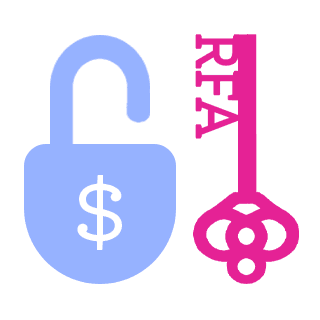Sedgwick Racks Up 79,318 DWC Audit Complaints

Third-Party Administrator (TPA) Sedgwick Claims Management Services, Inc. continues to ignore California workers’ comp billing regulations with impunity.
Currently, Sedgwick fails to return electronic Explanations of Review (e-EORs) for almost 25% of e-bills submitted by providers.
Critical to e-billing, e-EORs automatically post the payment to the e-bill, saving providers countless person-hours of manual work — which is why California law requires claims administrators to return an e-EOR within 15 working days of receiving an e-bill.
Last week, daisyBill filed 21,442 Audit Complaints with the Division of Workers’ Compensation (DWC), reporting Sedgwick’s failure to send e-EORs to daisyBill providers for e-bills from November 15, 2022 to March 14, 2023.
Previously daisyBill filed 57,876 Audit Complaints for the same violation, reporting Sedgwick’s failure to send e-EORs to daisyBill providers for e-bills from January 1, 2022 to November 14, 2022. This brings the total Audit Complaints filed against Sedgwick to 79,318.
daisyBill has requested the DWC provide instructions on filing a request for a targeted profile audit review of Sedgwick. California regulations mandate a $100 penalty for each instance of failure to comply with DWC regulations.
Given Sedgwick’s blatant violations, at $100 a pop, the DWC could easily motivate Sedgwick with $8 million in reasons to get its act together. The question is: will the DWC take action? As we know, there is no law unless it’s enforced.
Sedgwick’s employer and insurer clients should take notice of the verifiable data below, which demonstrates that the TPA’s lack of compliance not only continues, but increases in 2023.
Sedgwick: 23% of e-Bills Missing e-EORs (and Rising)
So far in 2023, Sedgwick failed to return an e-EOR (in the mandated X12 835 format) for 23% of e-bills submitted in 2023.
The table below reflects all e-bills sent to Sedgwick via daisyBill in 2022 and 2023, except e-bills sent in April (for which the 15-working-day e-EOR due date has not yet passed).
The data demonstrates Sedgwick’s rate of abject failure to return e-EORs has increased from its 2022 rate of 21%.
By way of comparison, see the numbers for another major claims administrator, California’s State Compensation Insurance Fund (SCIF), which maintained an overall non-compliance rate of less than 1% in 2022 and a little over 1% in 2023.
Month |
2022 Sedgwick e-EOR Missing % |
2022 SCIF e-EOR Missing % |
2023 Sedgwick e-EOR Missing % |
2023 SCIF e-EOR Missing % |
Jan |
25% |
0.6% |
23% |
0.2% |
Feb |
23% |
0.2% |
25% |
0.3% |
Mar |
21% |
0.3% |
22% |
2.6% |
Apr |
21% |
0.4% |
||
May |
21% |
0.2% |
||
Jun |
21% |
0.1% |
||
Jul |
19% |
0.4% |
||
Aug |
19% |
0.5% |
||
Sep |
19% |
2.7% |
||
Oct |
19% |
4.9% |
||
Nov |
19% |
0.3% |
||
Dec |
20% |
0.3% |
||
Bill Count Total |
289,483 |
107,167 |
76,075 |
27,364 |
e-EOR Missing Count Total |
59,688 |
969 |
17,678 |
305 |
e-EOR Missing % |
21% |
0.9% |
23% |
1.1% |
In total, from January 2022 to March 2023, Sedgwick failed to comply with e-billing regulations for 79,318 e-bills. That’s 79,318 times Sedgwick either:
- Did not pay the e-bill, or
- Snail-mailed an untimely paper EOR, forcing the provider to expend unwarranted resources posting manually, and wreaking havoc on Accounts Receivable
*The e-EOR Missing Count Total in the table does not add up to 79,318 Audit Complaints, because between the time of the prior audit complaint filings and the time the data was run for the comprehensive 2022 e-EOR missing statistics, Sedgwick transmitted 1,952 (late) e-EORs for older submissions.
Target Audit Complaint: No Consequences, No Compliance
daisyBill has requested the DWC provide instructions for requesting a targeted profile audit review of Sedgwick. California Labor Code Section §129(b)(3) empowers the DWC to conduct a “targeted profile audit review” or “full compliance audit” at any time, based on information from:
“...reliable sources providing factual information that indicates…third-party administrator is failing to meet its obligations…or the regulations of the administrative director.”
Pursuant to §129, California Code of Regulations Section 10106.1(c)(3) instructs the DWC may target audit subjects based on:
“...credible complaints and/or information received by the Division of Workers' Compensation that indicate possible claims handling violations, except that the Audit Unit will not target audit subjects based only on anonymous complaints unless the complaint(s) is supported by credible documentation.
Additionally, California Labor Code Section 129.5(a) empowers the DWC to impose administrative penalties on a TPA for failure to:
- Pay the “reasonable cost of medical treatment of an injured worker”
- Comply with any rule or regulation of the administrative director
Among other factors, the Labor Code empowers the DWC to impose penalties which give “due consideration” to:
- The gravity of the violation
- The good faith of the insurer, self-insured employer, or third-party administrator
- The history of previous violations
- The frequency of the violations
Sedgwick’s violations of e-EOR requirements are grave, collectively evince a lack of good faith, stretch back over years of payment history, and occur at a frequency of precisely 20.6% for daisyBill providers alone in 2022; goodness knows what the statewide numbers are.
California Code of Regulations Section 10111.2 is clear in assessing financial penalties for e-billing non-compliance, stating (emphasis ours):
For each failure to comply with any regulation of the Administrative Director, not otherwise assessed in this Subchapter, the penalty is $100.
Given Sedgwick’s continued and blatant violations, the DWC has every reason to impose monetary penalties against Sedgwick. But will they? While remaining hopeful, we are not holding our collective breath.
daisyBill tracks responses to your bills, appeals, and RFAs — so your practice knows when payers break the rules. Click below to request a demonstration.
REQUEST DEMO
DaisyBill provides content as an insightful service to its readers and clients. It does not offer legal advice and cannot guarantee the accuracy or suitability of its content for a particular purpose.





